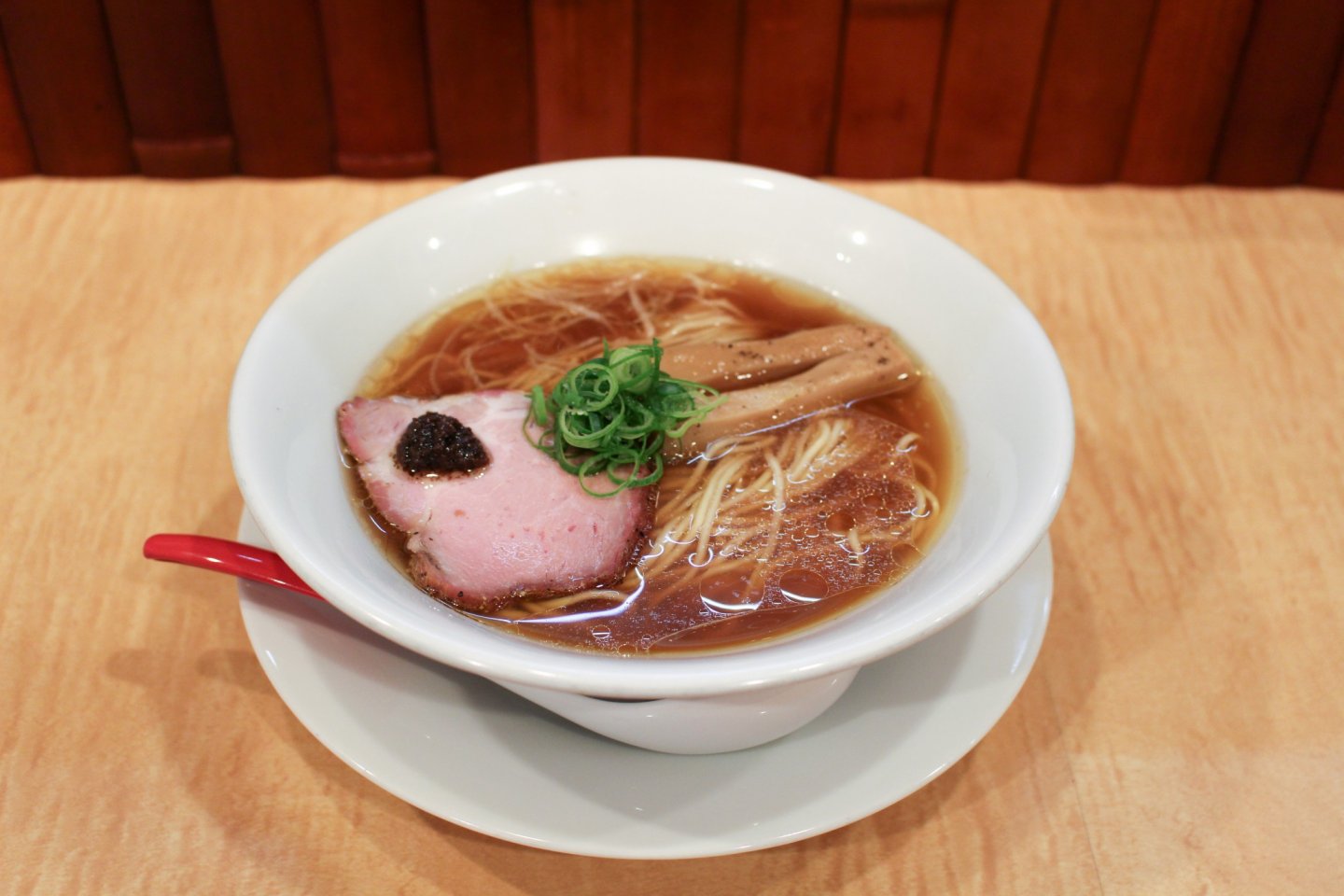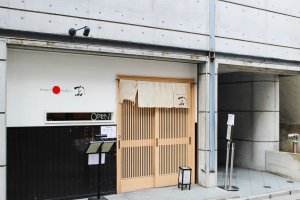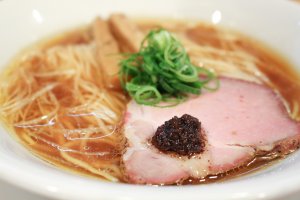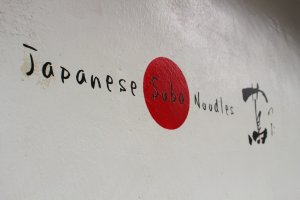Japanese Soba Noodles Tsuta (ジャパニーズソバヌードル 蔦) is a ramen shop located in Tokyo's Yoyogi-Uehara. The original Sugamo shop caused a big stir in the culinary world when it became the first-ever ramen shop to be awarded a coveted Michelin star in December 2015.
Tsuta's flagship Tokyo branch moved to Yoyogi Uehara in Dec 2019.
The trademark dish here is 'Shoyu Soba', soy sauce ramen, comprising a chicken and seafood stock base, enhanced by a delicate soy sauce blend. Thin stone-milled noodles cradle a slice of pork, topped with their signature black truffle oil. All the flavours in the bowl combine to deliver a deep, intense umami experience.
Bowled over – exploring Tsuta's ramen menu
The Yoyohi-Uehara location gives up the ticket machine so common to Japan's ramen shops and opts for a regular table menu. The core menu consists of either ramen or tsukemen ('Tsuke-soba'), in soy sauce (shoyu) or salt (shio) varieties. I opted for shoyu but as I detail, the shio version packs just as much flavour.
The shoyu ramen uses a sauce of cedar cask-aged Marudaizu natural soy sauce from Wakayama blended together with two more types—a naturally brewed and aged Nagano soy sauce and a white soy sauce—that deliver a unique, powerful flavour. This is added to a soup stock itself, with kelp from Hokkaido, pike from Mie and even clam stock added to the chicken base. The bowl of ramen is topped with a high grade Italian black truffle oil and black truffle sauce to complete the signature look.

The shio ramen combines clam and red sea bream into a seafood dashi, blended into the shio soup, which uses Okinawan sea salt and Mongolian rock salt, all topped by Italian white truffle oil, green tapenade, tomato and herbs on serving, which draw out the seafood flavours.
The noodles themselves are stone-milled on-site each morning, made from 4 varieties of domestic wheat flour, with egg and natural brine from Inner Mongolia. You can admire the noodles even more, by opting for tsukemen: one packed with porcini mushroom flavours and the other with lemongrass, coriander and lime.
You can safely know that Tsuta delivers on all accounts, thanks to both expert preparation and creative audacity using top quality ingredients. The Shoyu Soba bowl of ramen was a winner for me, with the black truffle oil perfectly balanced with the soup. The depth of flavour was incredible and made for one of my best shoyu experiences yet.

Yuki Onishi, the man behind Tsuta
Shunning a promising corporate career, Onishi-san instead returned to his Kanagawa hometown to follow in his father's footsteps and pursue his dream of opening a ramen shop. After years of training and studying the expert craft first-hand, he finally moved ahead with this own shop in 2012. Sitting down with the shop's owner-chef, Onishi-san, I wanted to know more about this success story, which has undoubtedly boosted ramen's global influence and inspired other ramen artisans in the industry.
The signs of Tsuta's potential were visible early on, but quickly surpassed expectations as queue times steadily grew throughout their inaugural year, culminating in a top ranking in the New Shop category (2013) in the industry's annual TRY ('Tokyo Ramen of the Year') publication.
Fast-forward to the Michelin award itself, Onishi-san recalls the surreal news in great detail. If the random, late-night phone call with the announcement didn't surprise him enough, the subsequent ceremony on stage—as the only ramen winner— must have helped ensure the news sank in quickly.
Onishi-san is evidently proud about his achievements but also excited by what lies ahead. With fame comes great responsibility, and they've worked hard on multiple fronts: from an improved queuing system and English support added to their ticket machine/guidance, to an imminent website launch.
Above all though, it's remarkable about how humble and grounded the real Onishi-san is. His number one goal is to just keep his customers happy, without compromise, which has been the same as day one. Improving and developing his brand starts with the ramen itself, and to this end he is always researching new flavours, sourcing new ingredients and hunting them down in person to assess first-hand. This sheer dedication clearly resonates well with his customers, not to mention the pundits. If he can maintain this level, we can expect a lot more exciting things to come (including plans for a new Singapore branch coming this summer).
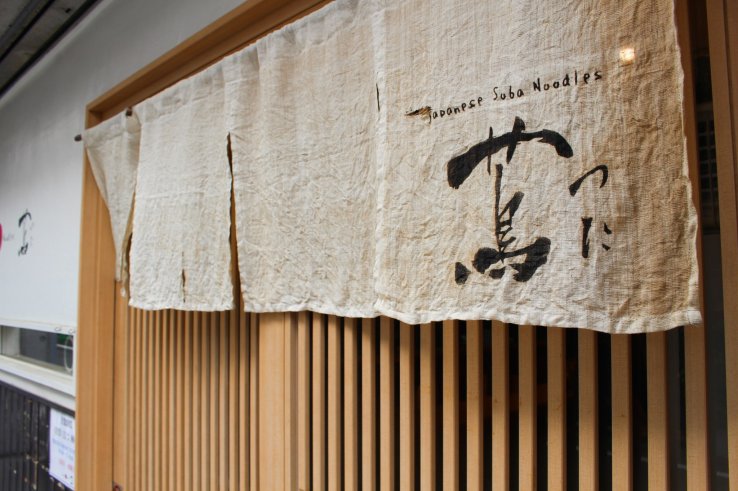
How to eat at Tsuta Ramen?
The Yoyogi-Uehara location has done away with the ticketing system used at Sugamo, which allowed visitors to book their place in line later in the day and return when they could be quickly seated. In Yoyogi-Uehara, it's back to regular queuing which for the most part works — but you might be expected to wait for over 1 hour during peak times.
Otherwise, it's been several years since the initial fanfare and buzz and it is certainly easier than ever before to try Tsuta's ramen — especially those familiar with their branches in Singapore, Philippines, Taiwan and the US (San Francisco).
If you're looking for a top-class ramen experience, or just affordable Michelin-star dining, a quick trip to Yoyogi-Uehara to try Tsuta is well worth it.
